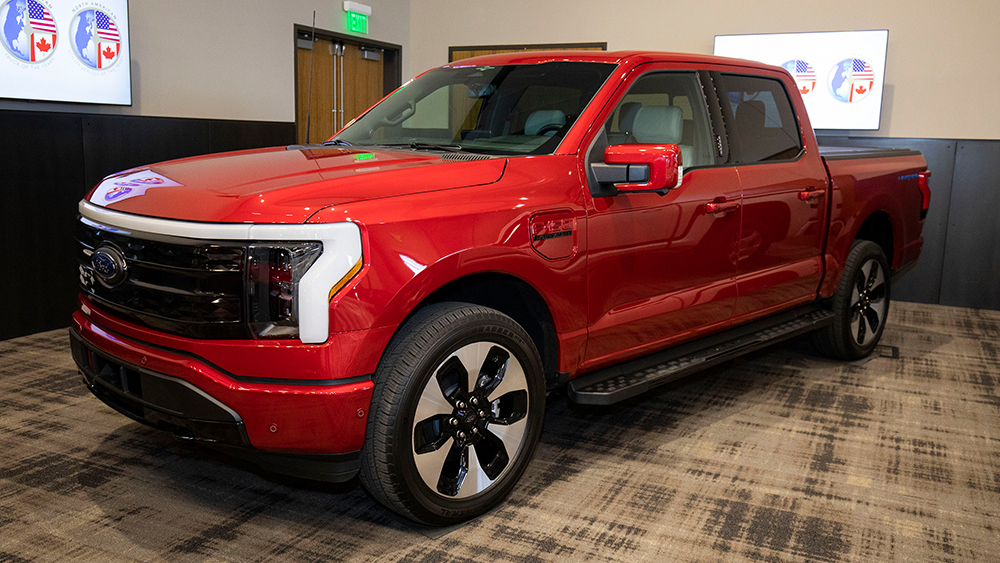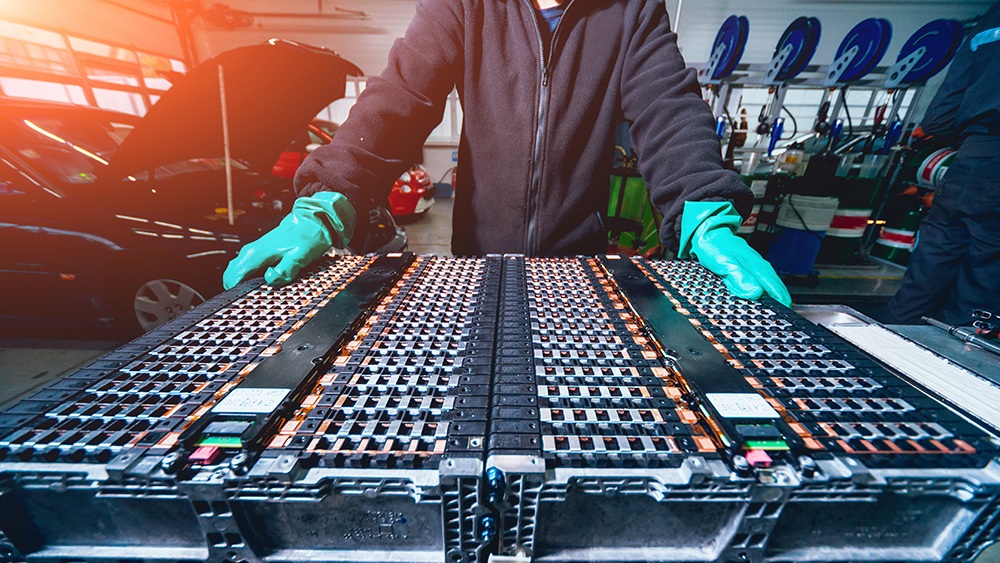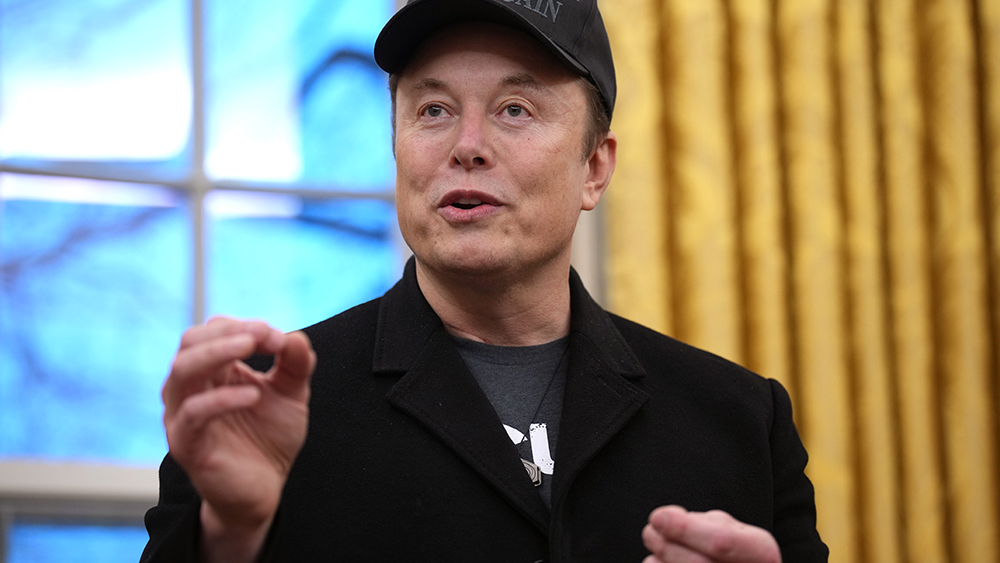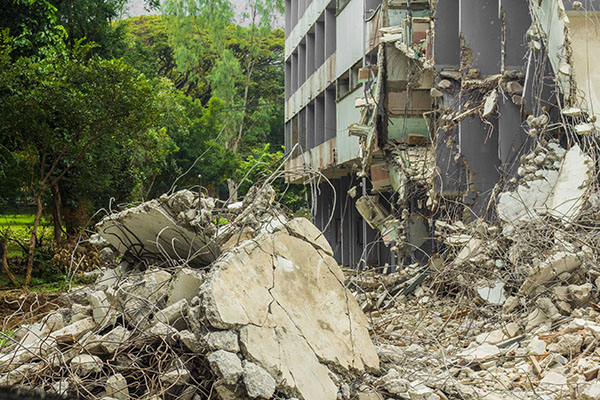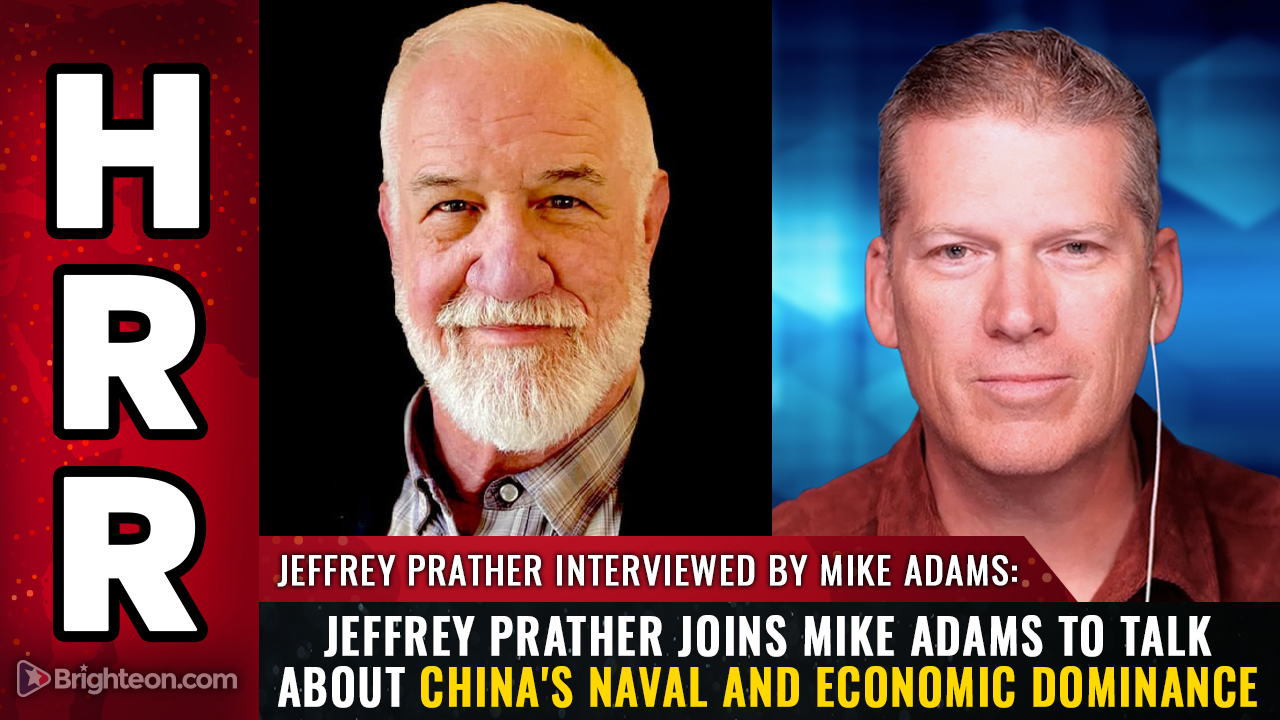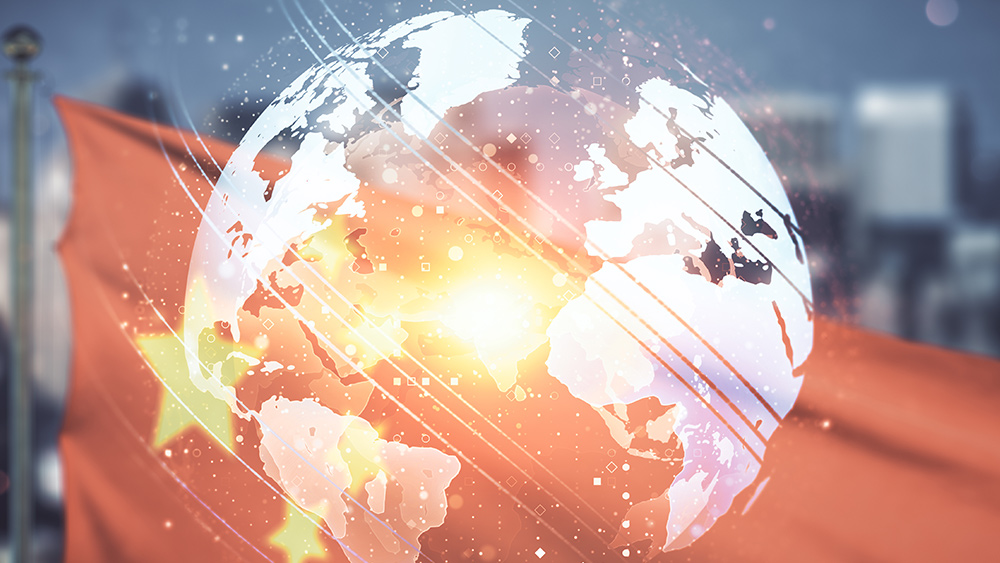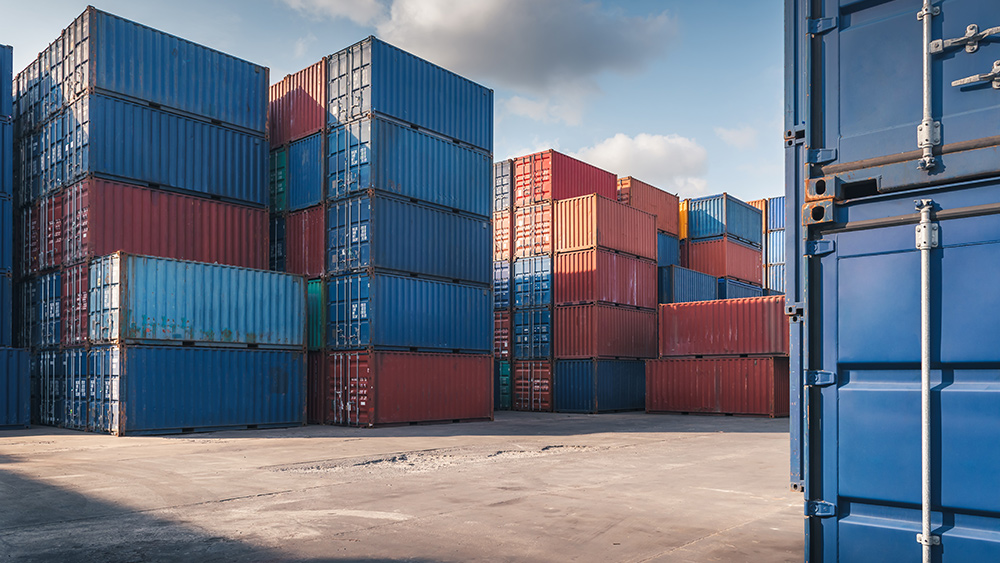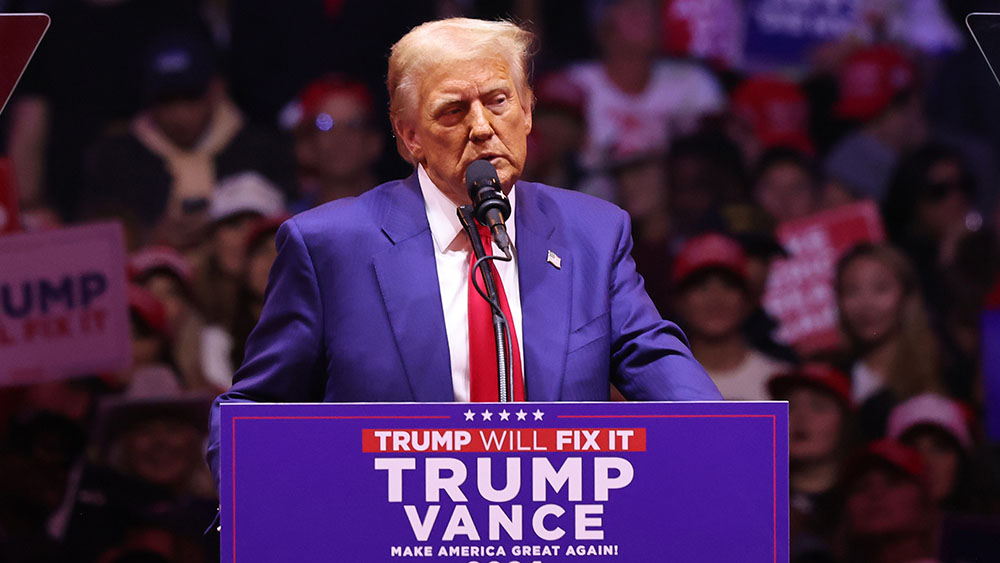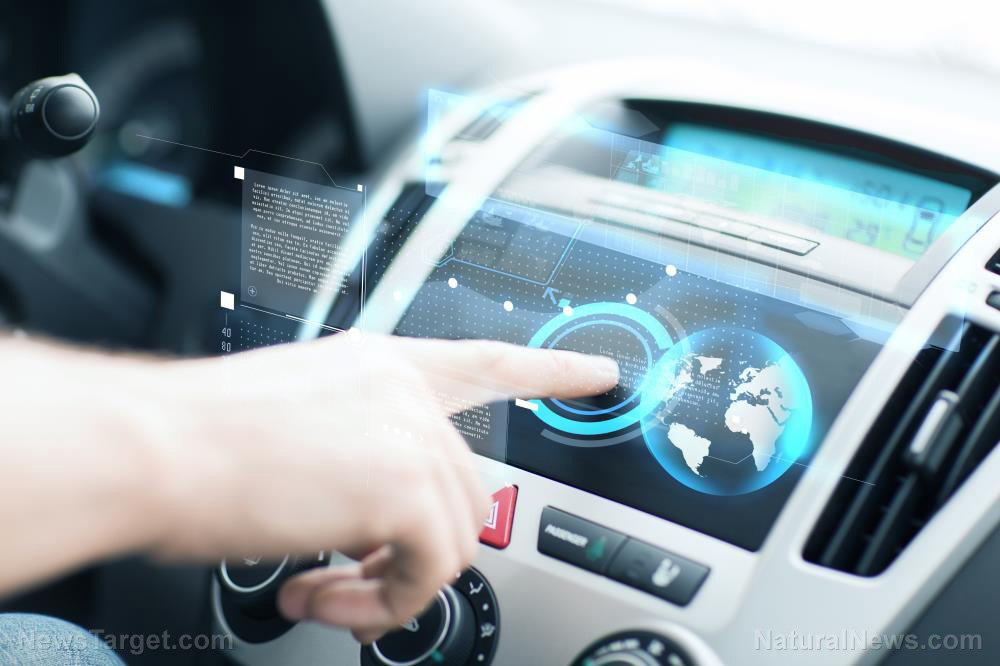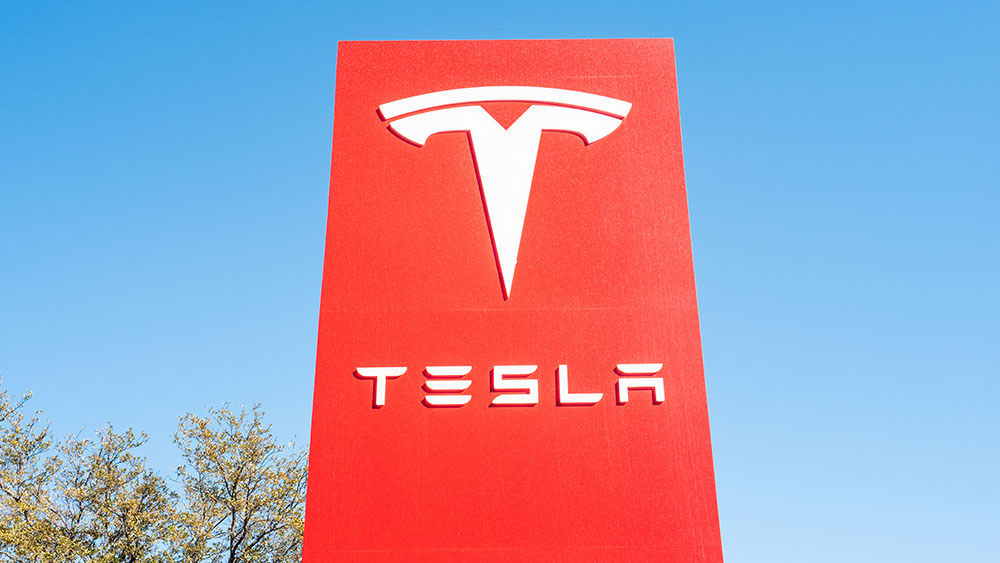Tesla suspends shipment of critical components from China due to escalating tariffs
04/22/2025 / By Laura Harris

- Tesla has halted plans to import critical components from China for its Cybercab and Semi due to escalating U.S. tariffs (now 145 percent), disrupting trial production timelines.
- China’s 125 percent tariff on U.S. auto imports forced Tesla to pause Model S/X orders there, making exports $14,000 more expensive per vehicle.
- Despite shifting to North American sourcing, Tesla still relies on China for 40 percent of imports (e.g., batteries, graphite), leaving it vulnerable to trade wars.
- The tariff hikes threaten production schedules for the Cybercab (Texas) and Semi (Nevada), key to Tesla’s future growth targets.
- The auto sector faces $110-160 billion in added annual costs, forcing automakers to absorb expenses, raise prices or restructure supply chains, with some (e.g., Stellantis) opting for layoffs and shutdowns.
Tesla’s plans to ship critical components from China for its upcoming Cybercab and Semi electric trucks have been suspended due to soaring U.S. tariffs imposed by President Donald Trump.
According to several reports, Tesla had prepared for a 34 percent tariff initially imposed but was caught off-guard by subsequent increases, first to 84 percent and then to 125 percent. The cumulative tariff now stands at 145 percent, making Chinese imports prohibitively expensive. (Related: Trump’s 25% auto tariffs shake industry, but Tesla stands strong.)
China, a crucial market for Tesla, has retaliated with a 125 percent tariff on U.S. auto imports, forcing Tesla to halt new orders for Model S and Model X vehicles there. The escalating trade war has made exporting vehicles prohibitively expensive, with tariffs adding an estimated $14,000 to the price of a Tesla in China.
This, in turn, has forced Tesla to halt shipments.
The company planned to receive components in the coming months for trial production of the Cybercab and Semi by October and full-scale manufacturing by 2026. The Cybercab, a futuristic robotaxi with no steering wheel or pedals, was slated for production in Texas, while the semi-electric truck was to be built in Nevada.
Tesla has spent the past two years increasing North American sourcing for its U.S. factories in anticipation of Trump’s trade policies. But the latest tariff hike has disrupted its supply chain strategy. This threatens to delay Tesla’s timeline for mass production of Cybercab and Semi electric trucks.
Tesla’s reliance on Chinese battery materials makes it vulnerable to tariffs
The disruption highlights Tesla’s heavy reliance on Chinese battery materials, a vulnerability Musk has sought to address.
Import taxes on vehicles entering China remain prohibitively high, compelling foreign automakers to either establish local production or abandon the market entirely. Even Tesla, which has invested heavily in a Shanghai Gigafactory, faces significant financial hurdles.
According to data from supply chain analytics firm Sayari, China still supplies around 40 percent of Tesla’s imports, including vital components like lithium-ion batteries, coolant tubes and spherical graphite. Meanwhile, Mexico (36.69 percent) and South Korea (11.44 percent) are other key suppliers.
Moreover, according to a recent study by the Boston Consulting Group, current U.S. and Chinese trade policies are expected to add $110-160 billion in annual costs to the auto industry. This economic pressure has left manufacturers with few good options: absorb the rising expenses, pass them on to consumers or restructure supply chains at great expense.
“Automakers must now balance conflicting incentives: minimizing exposure to import tariffs while maintaining access to specialized components and managing dramatically higher domestic production costs,” Tech in Asia wrote in an article.
This explains why multiple automakers have opted for temporary shutdowns and workforce reductions, rather than hastily reconfiguring supply chains. Stellantis and Jaguar Land Rover have already announced production pauses and layoffs, citing trade volatility as a key factor.
Follow ElonMuskWatch.com for more Tesla-related stories.
Watch this video of Trump delivering his remarks on auto tariffs.
This video is from the Daily Videos channel on Brighteon.com.
More related stories:
Soros-funded chaos: How liberal activism fuels domestic terrorism against Tesla.
FBI probes possible links between New Orleans terror attack and Las Vegas cybertruck explosion.
Terror strikes in New Orleans and Las Vegas spark concerns over coordinated attacks.
Millionaire fitness coach charged in Tesla vandalism incident as anti-Musk attacks escalate.
Sources include:
Submit a correction >>
Tagged Under:
auto industry, auto tariff, big government, bubble, China, collapse, Cybercab, disruption, Donald Trump, economic riot, economy, Elon Musk, finance riot, foreign relations, market crash, money supply, national security, risk, supply chain, tariffs, tesla, trade wars
This article may contain statements that reflect the opinion of the author
RECENT NEWS & ARTICLES
RoboCars.News is a fact-based public education website published by Robo Cars News Features, LLC.
All content copyright © 2018 by Robo Cars News Features, LLC.
Contact Us with Tips or Corrections
All trademarks, registered trademarks and servicemarks mentioned on this site are the property of their respective owners.


